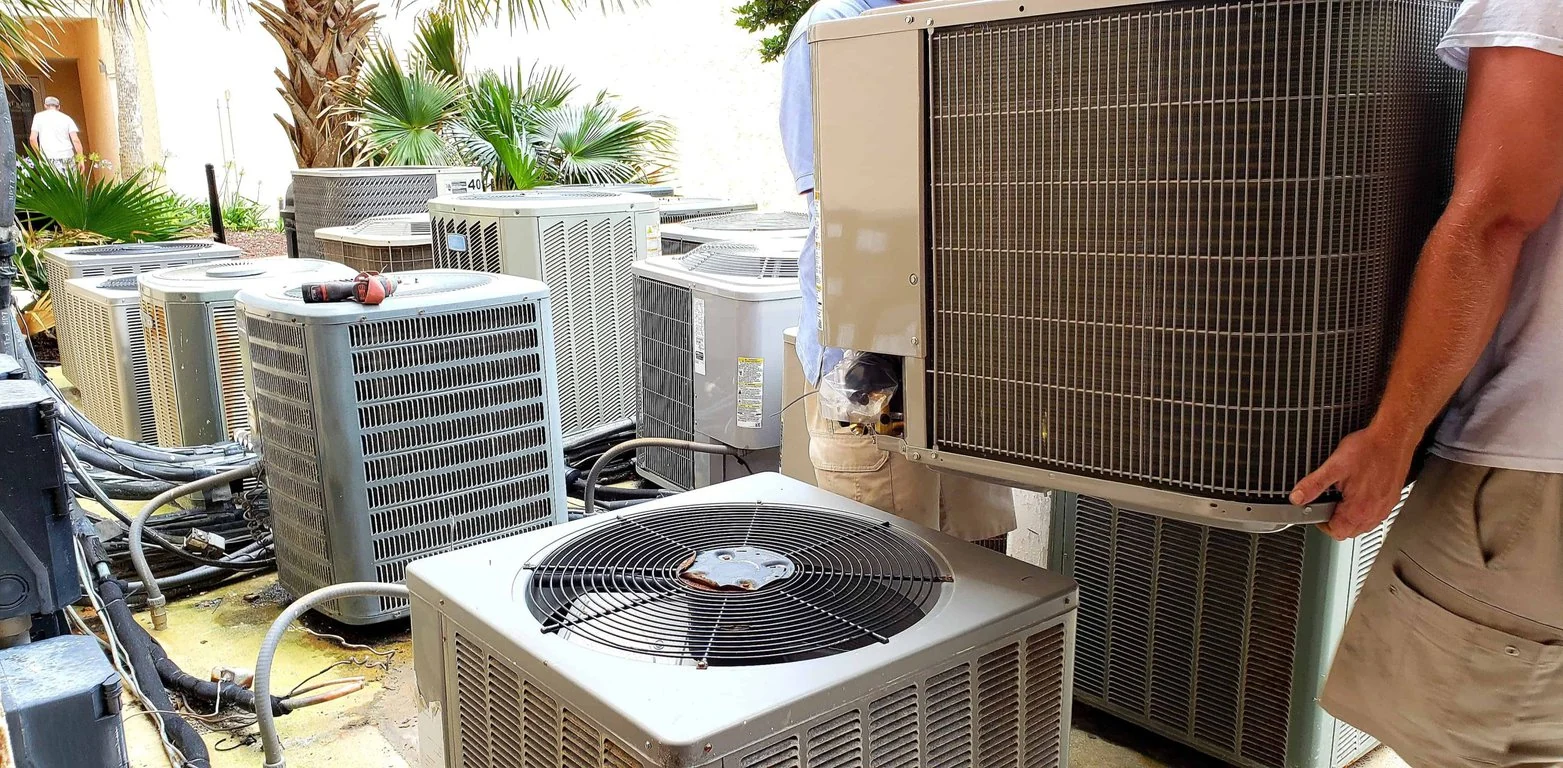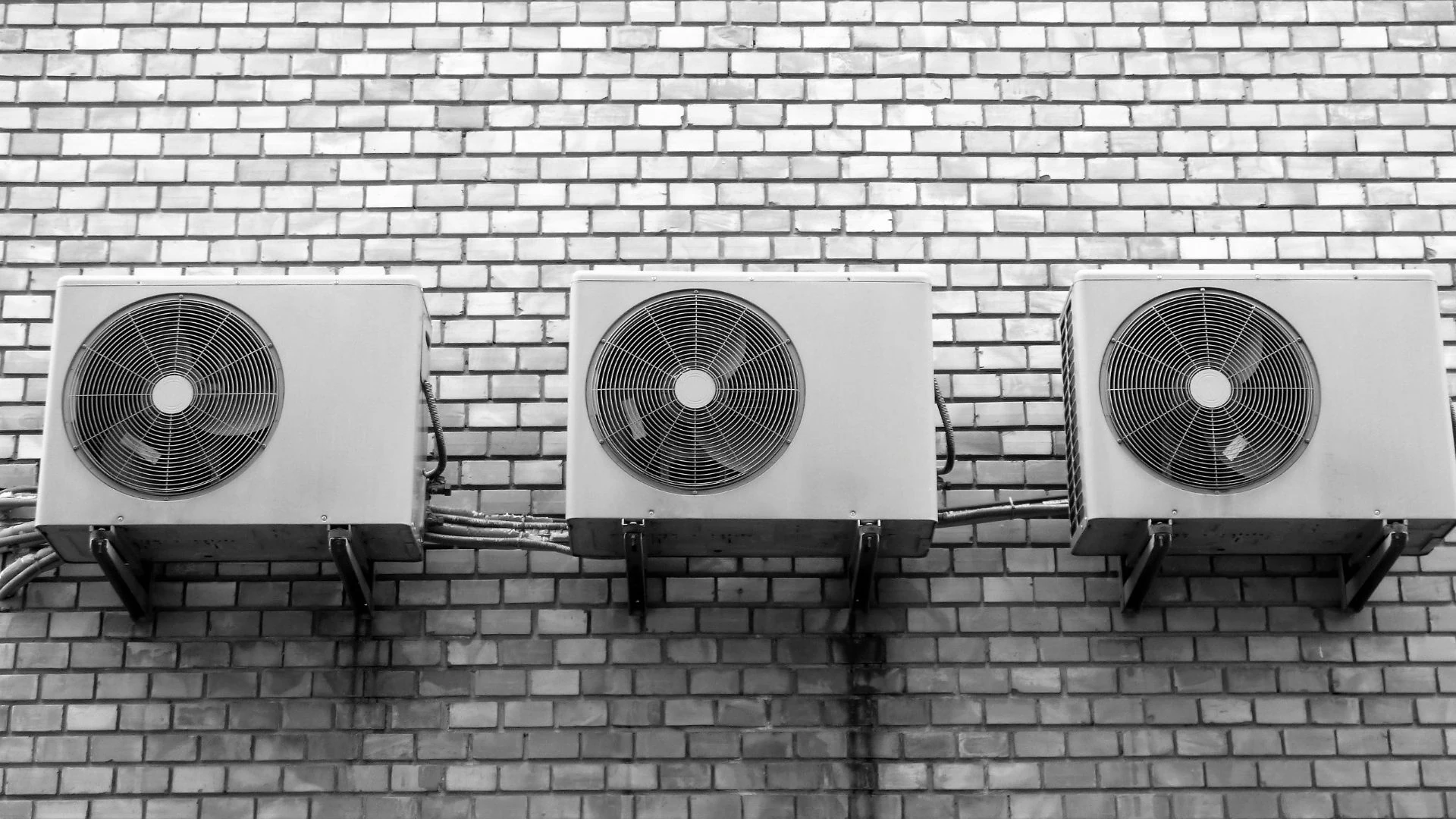What is Air Conditioning?
Air Conditioning is a system used to cool the air inside a building. The main components of an air conditioning system include an evaporator coil, compressor, condenser coil, and expansion valve. The evaporator coil absorbs heat from the indoor air and transfers it to the refrigerant inside the coils. The compressor then compresses this refrigerant to a higher temperature and pressure level. The condenser coil allows the heat from the refrigerant to be released outside of the building while the expansion valve reduces its pressure and temperature so that it can enter back into the evaporator coil for another cooling cycle.
To install an air conditioner, you will first need to prepare your home or business for installation. Begin by measuring your space and determining what size unit you need. Choose a location for placement that does not have any obstructions such as furniture or other items in front of it. Next, identify where you will be connecting power to your unit as well as any additional requirements such as ducts or vents if needed. Finally, install your unit according to manufacturer’s instructions and test it for proper operation before use.
Benefits of Installing an AC Unit
Installing an air conditioning unit can bring many benefits to your home or business. For starters, it provides a comfortable environment in any space, no matter the size. It is also energy efficient and helps reduce energy costs by using less electricity than other cooling systems. Additionally, air conditioning can help remove allergens and pollutants from the air, creating a healthier environment for you and your family.
Types of AC Units
When considering what type of air conditioning unit to install, there are several options to choose from. The two main types of air conditioners are window units and central air systems. Window units are the most common type and are meant to be installed in a single window or wall opening. They are usually more affordable than central air systems and can provide cooling for single rooms or small spaces. Central air systems are larger and more powerful, providing whole-home cooling. They require professional installation and are more expensive than window units, but they offer maximum efficiency for larger spaces and entire buildings.
Selecting the Right Size and Type of AC Unit for Your Home
When selecting an air conditioning unit for your home, it is important to consider the size of the space you are cooling as well as the type of unit that will best fit your needs. To determine what size unit you need, measure your space and compare it to the specifications provided by manufacturers.
Window units are the most popular type of air conditioner and can be easily installed in a single window or wall opening. Central air systems are also an option, but require more complex installation and can cool multiple rooms.
Calculating Square Footage for Proper Sizing
When selecting an AC unit, it is important to make sure you get a unit that is the proper size for your space. To do this, you will need to calculate the total square footage of your space. To do this, measure the length and width of each room and multiply those two numbers together. Then, add up all of the square footage numbers for each room to get the overall square footage of your space. Once you have this number, you can use it to compare to AC specifications provided by manufacturers to find a unit that will properly cool your space.
Energy Efficiency Ratings & Cost Savings Considerations
When selecting an air conditioning unit, it is important to consider the energy efficiency rating of the unit as well as potential cost savings. The seasonal energy efficiency ratio (SEER) is a measure of how much cooling power an AC system can provide for every watt of electricity it consumes. The higher the SEER rating, the more efficient and cost effective your air conditioning unit will be. Additionally, some companies offer energy efficiency rebates and tax credits for purchasing high-efficiency AC systems, so it is important to do your research to find out what incentives are available in your area.
Location & Installation Requirements for Different Models
When it comes to selecting an air conditioning unit for your home or business, the location of installation as well as the requirements for different models should be taken into consideration. Generally, window units can be installed in a single window or wall opening and require minimal installation effort. Central air systems, on the other hand, require more space for placement and may need additional requirements such as ducts or vents. Additionally, some central air systems require professional installation for proper operation.
Outdoor vs. Indoor Installation Options
When selecting an air conditioning unit, you will need to decide whether you want to install it indoors or outdoors. Outdoor installation is more common for larger units such as central air systems, while smaller window units can be installed indoors. Indoor installation often requires more effort due to the need for ductwork and vents, but it may provide better efficiency and can be safer in some cases.
Professional Installations and Maintenance of Your AC Unit
Though it is possible to install and maintain an air conditioning unit on your own, it is recommended to have a professional do the installation process. A professional installer will be able to assess the space and determine the best unit for your needs. They can also provide advice on what type of maintenance routine works best for your system.
Hiring a Professional to Perform the Installation Process
When it comes to installing an air conditioning unit, it is important to hire a professional for the job. A professional installer will be able to assess the space and determine the best unit for your needs. They will also be able to safely install the unit as per manufacturer instructions, ensuring that it works properly and efficiently. Additionally, they can also provide advice on what type of maintenance routine works best for your system.

